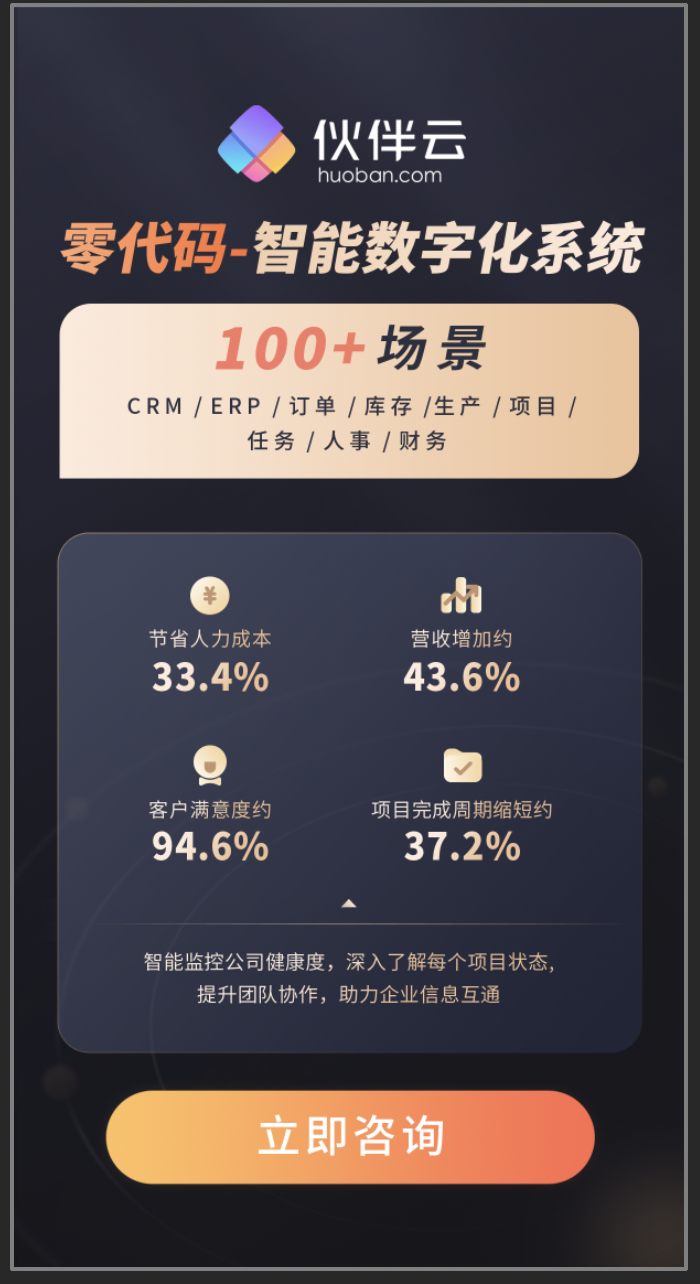
代码优先还是设计优先?说说API开发技术(七)
openapi-generator generate -i ./petstore.yaml -g spring -o out/server/springboot
UserController.java
package org.openapitools.api; import org.springframework.stereotype.Controller; import org.springframework.web.bind.annotation.RequestMapping; import org.springframework.web.context.request.NativeWebRequest; import java.util.Optional; @javax.annotation.Generated(value = "org.openapitools.codegen.languages.SpringCodegen", date = "2020-04-30T14:18:18.784-07:00[America/Los_Angeles]") @Controller @RequestMapping("${openapi.openAPIPetstore.base-path:/v2}") public class UserApiController implements UserApi { private final NativeWebRequest request; @org.springframework.beans.factory.annotation.Autowired public UserApiController(NativeWebRequest request) { this.request = request; } @Override public Optional
UserApi.java
/** * NOTE: This class is auto generated by OpenAPI Generator (https://openapi-generator.tech) (4.3.0). * https://openapi-generator.tech * Do not edit the class manually. */ package org.openapitools.api; import java.util.List; import org.openapitools.model.User; import io.swagger.annotations.*; import org.springframework.http.HttpStatus; import org.springframework.http.MediaType; import org.springframework.http.ResponseEntity; import org.springframework.validation.annotation.Validated; import org.springframework.web.bind.annotation.CookieValue; import org.springframework.web.bind.annotation.PathVariable; import org.springframework.web.bind.annotation.RequestBody; import org.springframework.web.bind.annotation.RequestHeader; import org.springframework.web.bind.annotation.RequestMapping; import org.springframework.web.bind.annotation.RequestMethod; import org.springframework.web.bind.annotation.RequestParam; import org.springframework.web.bind.annotation.RequestPart; import org.springframework.web.context.request.NativeWebRequest; import org.springframework.web.multipart.MultipartFile; import javax.validation.Valid; import javax.validation.constraints.*; import java.util.List; import java.util.Map; import java.util.Optional; @javax.annotation.Generated(value = "org.openapitools.codegen.languages.SpringCodegen", date = "2020-04-30T14:18:18.784-07:00[America/Los_Angeles]") @Validated @Api(value = "user", description = "the user API") public interface UserApi { default Optional
/** * POST /user/createWithArray : Creates list of users with given input array * * @param body List of user object (required) * @return successful operation (status code 200) */ @ApiOperation(value = "Creates list of users with given input array", nickname = "createUsersWithArrayInput", notes = "", tags={ "user", }) @ApiResponses(value = { @ApiResponse(code = 200, message = "successful operation") }) @RequestMapping(value = "/user/createWithArray", method = RequestMethod.POST) default ResponseEntity
/** * POST /user/createWithList : Creates list of users with given input array * * @param body List of user object (required) * @return successful operation (status code 200) */ @ApiOperation(value = "Creates list of users with given input array", nickname = "createUsersWithListInput", notes = "", tags={ "user", }) @ApiResponses(value = { @ApiResponse(code = 200, message = "successful operation") }) @RequestMapping(value = "/user/createWithList", method = RequestMethod.POST) default ResponseEntity
/** * DELETE /user/{username} : Delete user * This can only be done by the logged in user. * * @param username The name that needs to be deleted (required) * @return Invalid username supplied (status code 400) * or User not found (status code 404) */ @ApiOperation(value = "Delete user", nickname = "deleteUser", notes = "This can only be done by the logged in user.", tags={ "user", }) @ApiResponses(value = { @ApiResponse(code = 400, message = "Invalid username supplied"), @ApiResponse(code = 404, message = "User not found") }) @RequestMapping(value = "/user/{username}", method = RequestMethod.DELETE) default ResponseEntity
/** * GET /user/{username} : Get user by user name * * @param username The name that needs to be fetched. Use user1 for testing. (required) * @return successful operation (status code 200) * or Invalid username supplied (status code 400) * or User not found (status code 404) */ @ApiOperation(value = "Get user by user name", nickname = "getUserByName", notes = "", response = User.class, tags={ "user", }) @ApiResponses(value = { @ApiResponse(code = 200, message = "successful operation", response = User.class), @ApiResponse(code = 400, message = "Invalid username supplied"), @ApiResponse(code = 404, message = "User not found") }) @RequestMapping(value = "/user/{username}", produces = { "application/xml", "application/json" }, method = RequestMethod.GET) default ResponseEntity
/** * GET /user/login : Logs user into the system * * @param username The user name for login (required) * @param password The password for login in clear text (required) * @return successful operation (status code 200) * or Invalid username/password supplied (status code 400) */ @ApiOperation(value = "Logs user into the system", nickname = "loginUser", notes = "", response = String.class, tags={ "user", }) @ApiResponses(value = { @ApiResponse(code = 200, message = "successful operation", response = String.class), @ApiResponse(code = 400, message = "Invalid username/password supplied") }) @RequestMapping(value = "/user/login", produces = { "application/xml", "application/json" }, method = RequestMethod.GET) default ResponseEntity
/** * GET /user/logout : Logs out current logged in user session * * @return successful operation (status code 200) */ @ApiOperation(value = "Logs out current logged in user session", nickname = "logoutUser", notes = "", tags={ "user", }) @ApiResponses(value = { @ApiResponse(code = 200, message = "successful operation") }) @RequestMapping(value = "/user/logout", method = RequestMethod.GET) default ResponseEntity
/** * PUT /user/{username} : Updated user * This can only be done by the logged in user. * * @param username name that need to be deleted (required) * @param body Updated user object (required) * @return Invalid user supplied (status code 400) * or User not found (status code 404) */ @ApiOperation(value = "Updated user", nickname = "updateUser", notes = "This can only be done by the logged in user.", tags={ "user", }) @ApiResponses(value = { @ApiResponse(code = 400, message = "Invalid user supplied"), @ApiResponse(code = 404, message = "User not found") }) @RequestMapping(value = "/user/{username}", method = RequestMethod.PUT) default ResponseEntity
openapi-generator generate -i ./petstore.yaml -g go-server -o out/server/go-server
main.go
/* * OpenAPI Petstore * * This is a sample server Petstore server. For this sample, you can use the api key `special-key` to test the authorization filters. * * API version: 1.0.0 * Generated by: OpenAPI Generator (https://openapi-generator.tech) */ package main import ( "log" "net/http" openapi "github.com/GIT_USER_ID/GIT_REPO_ID/go" ) func main() { log.Printf("Server started") PetApiService := openapi.NewPetApiService() PetApiController := openapi.NewPetApiController(PetApiService) StoreApiService := openapi.NewStoreApiService() StoreApiController := openapi.NewStoreApiController(StoreApiService) UserApiService := openapi.NewUserApiService() UserApiController := openapi.NewUserApiController(UserApiService) router := openapi.NewRouter(PetApiController, StoreApiController, UserApiController) log.Fatal(http.ListenAndServe(":8080", router)) }
api.go
/* * OpenAPI Petstore * * This is a sample server Petstore server. For this sample, you can use the api key `special-key` to test the authorization filters. * * API version: 1.0.0 * Generated by: OpenAPI Generator (https://openapi-generator.tech) */ package openapi import ( "net/http" "os" )
// PetApiRouter defines the required methods for binding the api requests to a responses for the PetApi // The PetApiRouter implementation should parse necessary information from the http request, // pass the data to a PetApiServicer to perform the required actions, then write the service results to the http response. type PetApiRouter interface { AddPet(http.ResponseWriter, *http.Request) DeletePet(http.ResponseWriter, *http.Request) FindPetsByStatus(http.ResponseWriter, *http.Request) FindPetsByTags(http.ResponseWriter, *http.Request) GetPetById(http.ResponseWriter, *http.Request) UpdatePet(http.ResponseWriter, *http.Request) UpdatePetWithForm(http.ResponseWriter, *http.Request) UploadFile(http.ResponseWriter, *http.Request) } // StoreApiRouter defines the required methods for binding the api requests to a responses for the StoreApi // The StoreApiRouter implementation should parse necessary information from the http request, // pass the data to a StoreApiServicer to perform the required actions, then write the service results to the http response. type StoreApiRouter interface { DeleteOrder(http.ResponseWriter, *http.Request) GetInventory(http.ResponseWriter, *http.Request) GetOrderById(http.ResponseWriter, *http.Request) PlaceOrder(http.ResponseWriter, *http.Request) } // UserApiRouter defines the required methods for binding the api requests to a responses for the UserApi // The UserApiRouter implementation should parse necessary information from the http request, // pass the data to a UserApiServicer to perform the required actions, then write the service results to the http response. type UserApiRouter interface { CreateUser(http.ResponseWriter, *http.Request) CreateUsersWithArrayInput(http.ResponseWriter, *http.Request) CreateUsersWithListInput(http.ResponseWriter, *http.Request) DeleteUser(http.ResponseWriter, *http.Request) GetUserByName(http.ResponseWriter, *http.Request) LoginUser(http.ResponseWriter, *http.Request) LogoutUser(http.ResponseWriter, *http.Request) UpdateUser(http.ResponseWriter, *http.Request) }
// PetApiServicer defines the api actions for the PetApi service // This interface intended to stay up to date with the openapi yaml used to generate it, // while the service implementation can ignored with the .openapi-generator-ignore file // and updated with the logic required for the API. type PetApiServicer interface { AddPet(Pet) (interface{}, error) DeletePet(int64, string) (interface{}, error) FindPetsByStatus([]string) (interface{}, error) FindPetsByTags([]string) (interface{}, error) GetPetById(int64) (interface{}, error) UpdatePet(Pet) (interface{}, error) UpdatePetWithForm(int64, string, string) (interface{}, error) UploadFile(int64, string, *os.File) (interface{}, error) }
// StoreApiServicer defines the api actions for the StoreApi service // This interface intended to stay up to date with the openapi yaml used to generate it, // while the service implementation can ignored with the .openapi-generator-ignore file // and updated with the logic required for the API. type StoreApiServicer interface { DeleteOrder(string) (interface{}, error) GetInventory() (interface{}, error) GetOrderById(int64) (interface{}, error) PlaceOrder(Order) (interface{}, error) }
// UserApiServicer defines the api actions for the UserApi service // This interface intended to stay up to date with the openapi yaml used to generate it, // while the service implementation can ignored with the .openapi-generator-ignore file // and updated with the logic required for the API. type UserApiServicer interface { CreateUser(User) (interface{}, error) CreateUsersWithArrayInput([]User) (interface{}, error) CreateUsersWithListInput([]User) (interface{}, error) DeleteUser(string) (interface{}, error) GetUserByName(string) (interface{}, error) LoginUser(string, string) (interface{}, error) LogoutUser() (interface{}, error) UpdateUser(string, User) (interface{}, error) }
1. ada
2. ada-server
3. android
4. apache2
5. apex
6. aspnetcore
7. avro-schema
8. bash
9. c
10. clojure
11. cwiki
12. cpp-qt5-client
13. cpp-qt5-qhttpengine-server
14. cpp-pistache-server
15. cpp-restbed-server
16. cpp-restsdk
17. cpp-tizen
18. csharp
19. csharp-netcore
20. csharp-dotnet2
21. csharp-nancyfx
22. dart
23. dart-dio
24. dart-jaguar
25. eiffel
26. elixir
27. elm
28. erlang-client
29. erlang-proper
30. erlang-server
31. flash
32. fsharp-giraffe-server
33. go
34. go-experimental
35. go-server
36. go-gin-server
37. graphql-schema
38. graphql-nodejs-express-server
39. groovy
40. kotlin
41. kotlin-server
42. kotlin-spring
43. kotlin-vertx
44. haskell-http-client
45. haskell
46. java
47. jaxrs-cxf-client
48. java-inflector
49. java-msf4j

50. java-pkmst
51. java-play-framework
52. java-undertow-server
53. java-vertx
54. java-vertx-web
55. jaxrs-cxf
56. jaxrs-cxf-extended
57. jaxrs-cxf-cdi
58. jaxrs-jersey
59. jaxrs-resteasy
60. jaxrs-resteasy-eap
61. jaxrs-spec
62. javascript
63. javascript-apollo
64. javascript-flowtyped
65. javascript-closure-angular
66. jmeter
67. k6
68. lua
69. mysql-schema
70. nim
71. nodejs-server-deprecated
72. nodejs-express-server
73. objc
74. ocaml
75. openapi
76. openapi-yaml
77. perl
78. php
79. php-laravel
80. php-lumen
81. php-slim-deprecated
82. php-slim4
83. php-silex
84. php-symfony
85. php-ze-ph
86. powershell
87. powershell-experimental
88. protobuf-schema
89. python
90. python-experimental
91. python-flask
92. python-aiohttp
93. python-blueplanet
94. r
95. ruby
96. ruby-on-rails
97. ruby-sinatra
98. rust
99. rust-server
100. scalatra
101. scala-akka
102. scala-finch
103. scala-httpclient-deprecated
104. scala-gatling
105. scala-lagom-server
106. scala-play-server
107. scalaz
108. spring
109. dynamic-html
110. html
111. html2
112. swift2-deprecated
113. swift3-deprecated
114. swift4
115. swift5
116. typescript-angular
117. typescript-angularjs
118. typescript-aurelia
119. typescript-axios
120. typescript-fetch
121. typescript-inversify
122. typescript-jquery
123. typescript-node
124. typescript-redux-query
125. typescript-rxjs
126. asciidoc
127. fsharp-functions
128. markdown
129. scala-sttp
【代码优先:Swagger UI】
我们来看一下如何从现有的代码生成API文档。
安装程序库:
API
版权声明:本文内容由网络用户投稿,版权归原作者所有,本站不拥有其著作权,亦不承担相应法律责任。如果您发现本站中有涉嫌抄袭或描述失实的内容,请联系我们jiasou666@gmail.com 处理,核实后本网站将在24小时内删除侵权内容。





